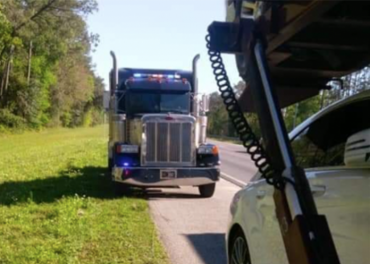Revised HOS rule submitted for review, Chao says

LOUISVILLE. The Federal Motor Carrier Safety Administration is rolling out a “more flexible” hours of service rule, Transportation Secretary Elaine Chao told truckers gathered here for the Mid-America Trucking Show.
“I’m pleased to announce today that the department is moving forward with the next step: a Notice of Proposed Rule Making,” Chao said, adding that NPRM had just been sent to the Office of Management and Budget for review.
She could provide no details, pending the conclusion of the review, but Chao emphasized that the DOT “understands the strong interest in increasing flexibility and is giving it serious consideration. … So stay tuned.”
She noted that a year ago at MATS truckers shared with FMCSA leadership their desire for more HOS flexibility and, as a result, last August the agency published an Advance Notice of Proposed Rulemaking to gather more input. That notice generated more than 5,200 comments, “which have been carefully noted and considered.”
“This was key to assessing if a change would ease unnecessary burdens on the industry while maintaining safety on our nation’s roadways,” Chao said. “The department is listening closely to the priorities of truck drivers and industry stakeholders. These innovations will help strengthen the trucking industry, increase safety and save lives.”
In other remarks, delivered despite a power outage and a fire false alarm, Chao said the DOT would propose to expand and make permanent the “Crash Preventability Demonstration Program”—an ongoing 24-month evaluation period to remove crashes from a driver’s record when the driver is not a fault. She also touched on DOT efforts to find solutions to the truck parking shortage, and to help US military personnel transition to civilian jobs in the trucking industry.
Chao concluded by praising truck drivers as “the backbone of our economy.”
“Without you, our economy would come to a halt, and quality of life would suffer,” she said. “So I look forward to continuing to work with you, to address the needs of the industry, to increase safety, and to ensure a bright future for America’s truckers.”
